O, let America be America again—
The land that never has been yet—
And yet must be—the land where every one is free.
The land that’s mine—the poor one’s, Indian’s, Negro’s, ME—
Who made America,
Whose sweat and blood, whose faith and pain,
Whose hand at the foundry, whose plow in the rain,
Must bring back our mighty dream again.Sure, call me any ugly name you choose—
Langston Hughes
The steel of freedom does not stain.
From those who live like leeches on the people’s lives,
We must take back our land again,
America!
Last Wednesday, 600 of us showed up at the major intersection of McMinnville, Oregon to add ours to the Pentecost of voices across America who, for centuries, have spoken in our own languages but have so often not understood each other’s truth. With so many translators offering their versions of what this means and protests, peaceful and violent, seek to redeem our streets and national conversation, one thing is clear. As Americans, we have one interpreter in common: Racism. Staring back at us from our screens 24/7 is the latest episode of brutal violence against our black and brown communities. No one should look away, especially old white guys like me.
For McMinnville it was our first protest of the week. It might not have happened but for one high school girl and her allies enduring nasty racist facebook rants to bring us out. I’m guessing there’s never been as young and diverse a crowd showing up in McMinnville to call out for the Beloved Community to be established in our land that has never been yet. Never an assembly on the street so young, colorful, courageous or large. The collage above shows a few of the signs. One stands out to me: SAY HIS NAME!!! Hard as it has been within the confines of COVID, we have tried not to look away. We have deeply grieved the violence, especially in our own city of Portland, but one thing that has happened is the naming. We have named and pictured George Floyd. We have named Ahmaud Arbery, Breonna Taylor, Tony McDade and we are naming Michael Brown again and Trayvon Martin. Let us continue to put names and faces on centuries of countless senseless acts of violence against people simply because of the color of their skin. Let’s keep naming the racism that is part of every institution, economy, structure and ritual that makes us Americans.
As a white man, I must keep looking and listening. Brothers and sisters of color are offering me and other white males and females so many rich opportunities to understand our white privilege and the rude realities that all people of color face every second of every day, year to year to year. I attended a webinar hosted by the Greater NW Area of the United Methodist Church and Bishop Elaine Stanovsky. It was facilitated by three African American men, Rev. Dr. Leroy Barber, Rev. Steve Barber and Dr. Daymond Glenn all from communities and United Methodist Churches in the Pacific Northwest.
There is much to digest from their conversation but one phrase will stick with me forever: “Spectacle Lynching.” Between 1877 and 1950, more than 4,400 black men, women and children lynched in spectacular sideshows of intimidation. Most white folks think lynching is a thing of the distant past. But we now have another chance to see that it is still a terrifying and ugly reality, especially for young black and brown men on the streets and back roads of America, in our prisons and on the Reservations. But what I heard our African American clergy colleagues say is that George Floyd was lynched—a victim of spectacle lynching. He wasn’t charged with a crime he didn’t commit, hauled off by a mob and hung from a tree, castrated and mutilated as in the past when sometimes thousands of white spectators would gather to sing, cheer and sneer or left to hang for days for all to see. Already emotionally, culturally and economically castrated and mutilated by the mob majority of America, he was arrested and died with millions watching, while one who is called to protect and serve knelt on his neck and choking off his breath and freedom. The spectacle is key here. Lynchings are public because they are institutionalized to send the clear message: “This will happen to you. Slaves, be obedient to your masters. You are next.”
How can we respond as white Americans to the racism so pervasive in us? And how do we respond to the victims. Let’s learn to name them. In my town as our Latinx neighbors become more than 2/3 of our population, they are still quite invisible and very much in hiding. There’s an old Mexican American man, who sits in his walker along the sidewalk where I pass every other day on my way to jog in the park. I have always waved and he nods as I drive by. But today I stopped. I pulled over, got out and walked across the street. Before I could speak he said “No hablo ingles!” He doesn’t understand any English. I don’t know much Spanish, but I tried “Me llamo Juan.” He smiled and shook his head yes. He said, “Juan.” What’s yours was easy then. He replied “Jose.” Now I know his name and he knows mine. It’s just a small step in re-humanizing our place.
We haven’t taken the time yet to explore the many organizations suggested to us that we might join, volunteer in and fund, but we will. In the meantime, as the streets were filling in protest, we helped with the fundraiser for the Immigration Counseling and Advocacy Program of our local branch of Lutheran Community Services NW. We raised $95,000 to provide staffing for legal advocacy for immigrant families who live in daily fear of losing their children, their homes and livelihoods in this America that has never been yet. Here is a list provided by Portland area advocates for people of color in case you’re so inspired and haven’t been able yet to act:
- Portland Urban League
- African American Alliance for Homeownership
- Portland African American Leadership Forum
- 28 national organizations that empower black communities
When President Trump waved the Bible around last week, it was a call to righteous indignation and passionate action. It was a call especially to people of faith whose lives are fundamentally informed by the witness of the Holy Book and centuries of courageous acts by prophetic souls of many faiths, confronting the bigoted leaders of their times to make a spectacle of justice where intimidation and violence are dominating the cultural message. For people of Jesus who, himself, was lynched as a public spectacle of intimidation to the marginalized folk of his time, this is a no-brainer. Even with the pandemic, I’m puzzled by the conspicuous silence of our local church leaders. Some have suggested that we need to teach the President a proper way to hold the good book in public. I say, let’s recruit someone else to hold it and put it’s message of love and justice to work in our public policy and common life.

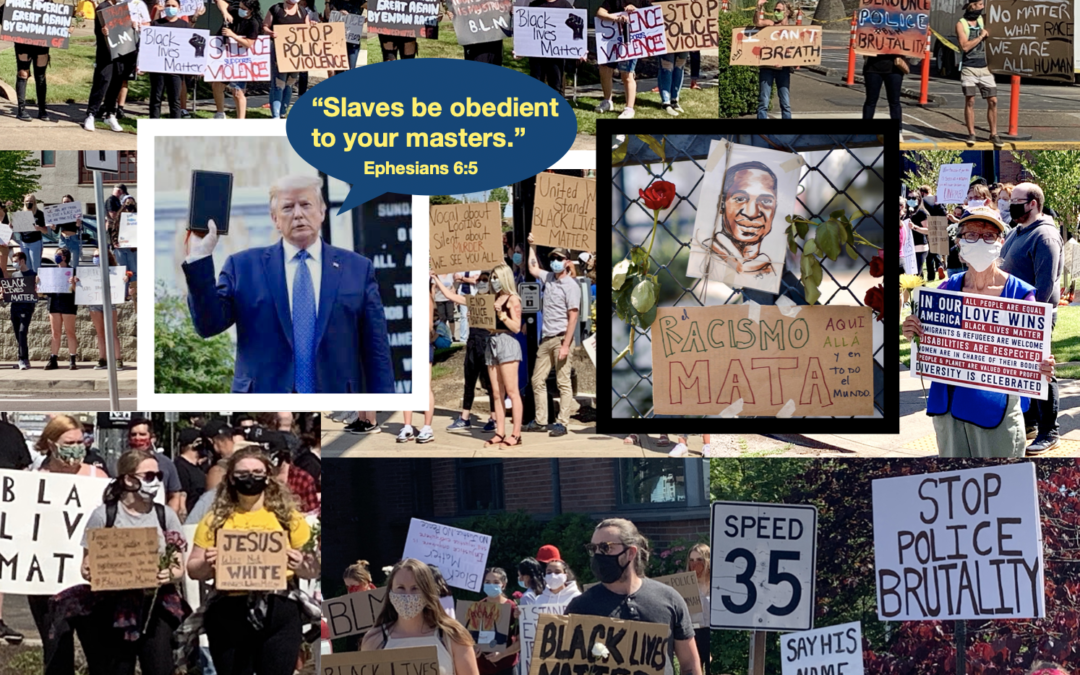
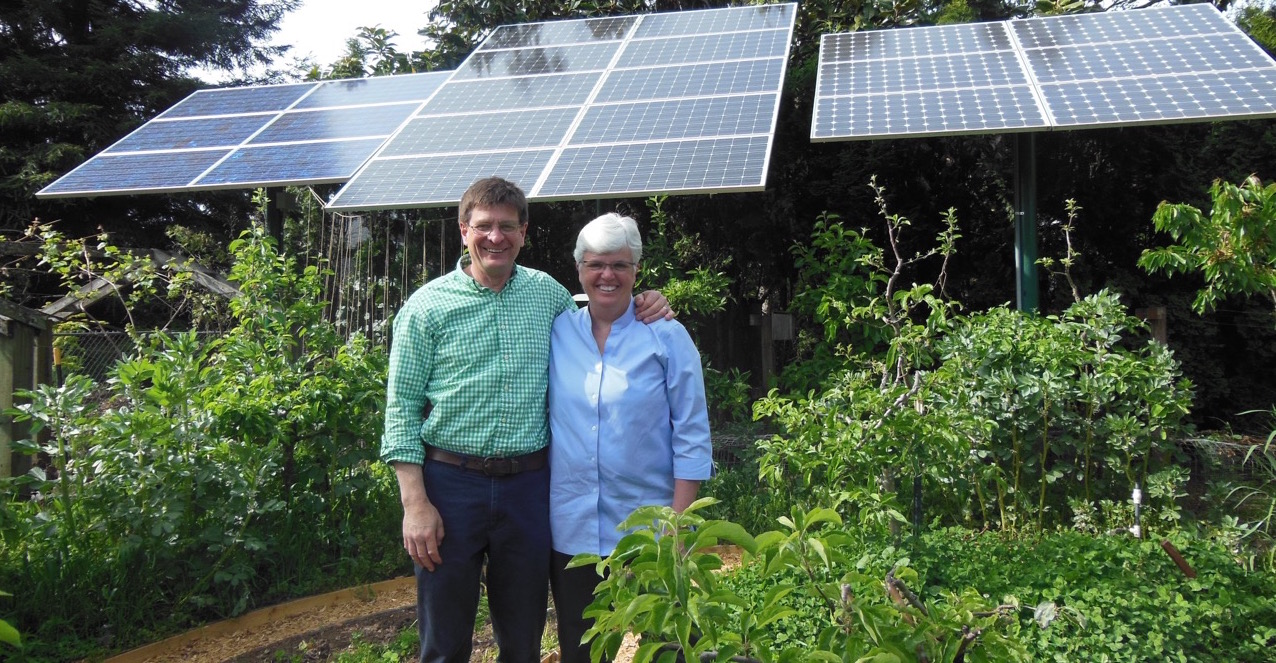


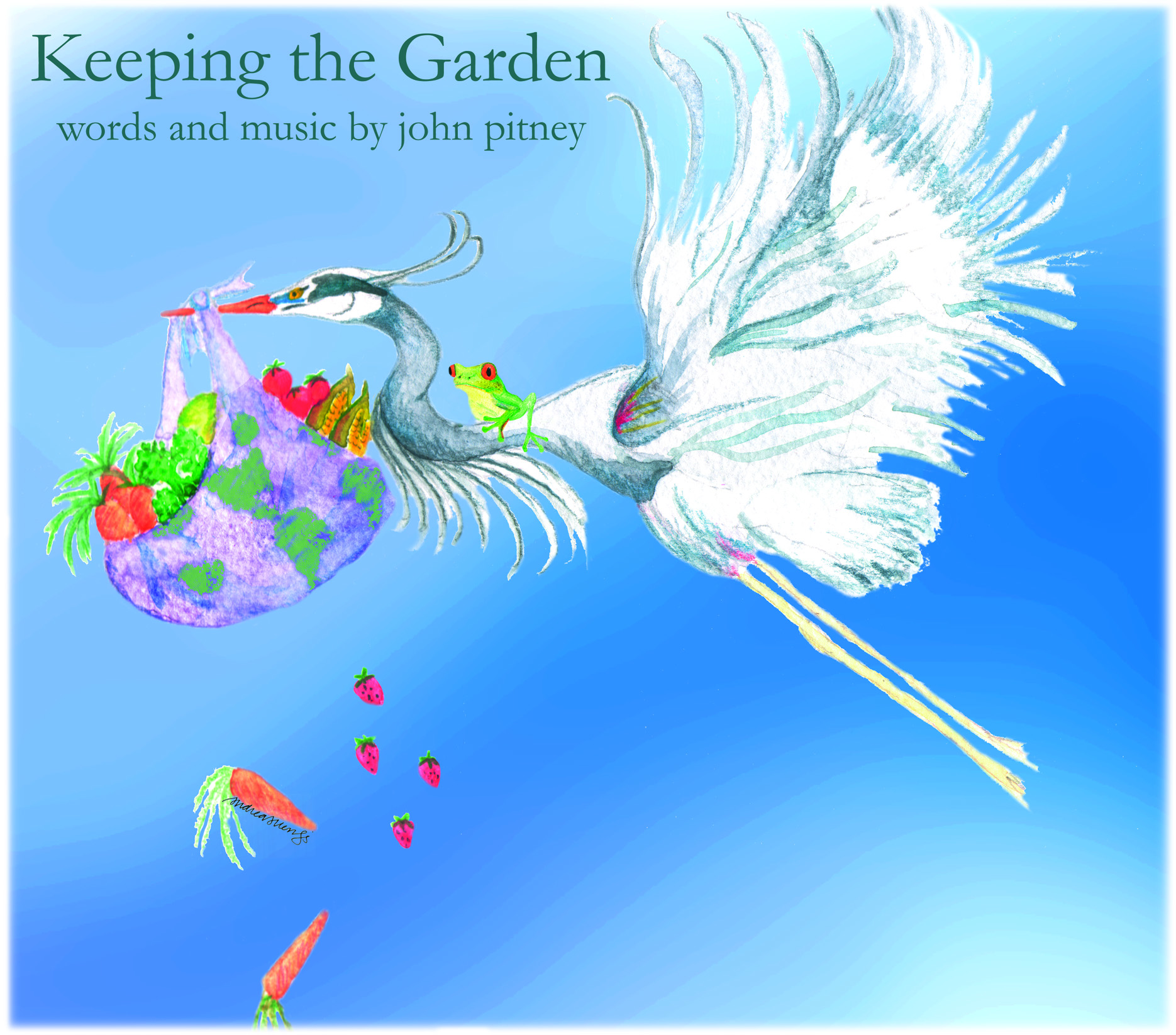
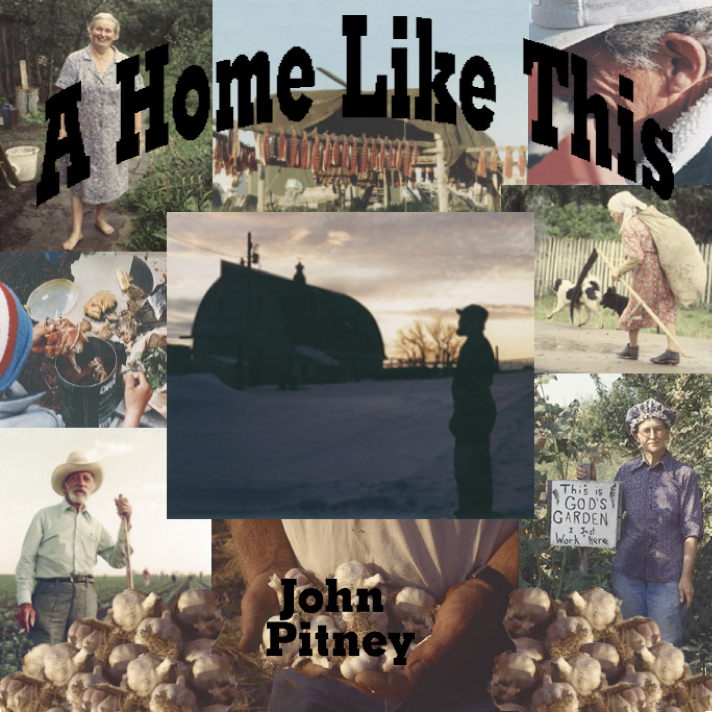
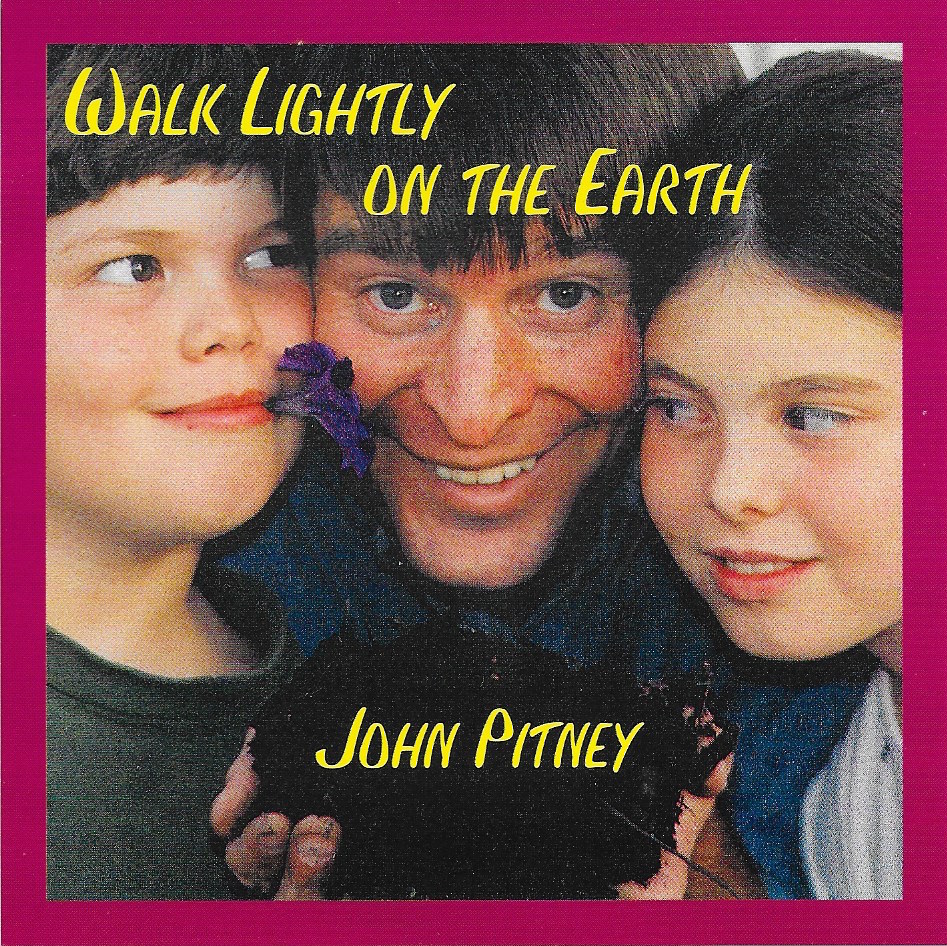
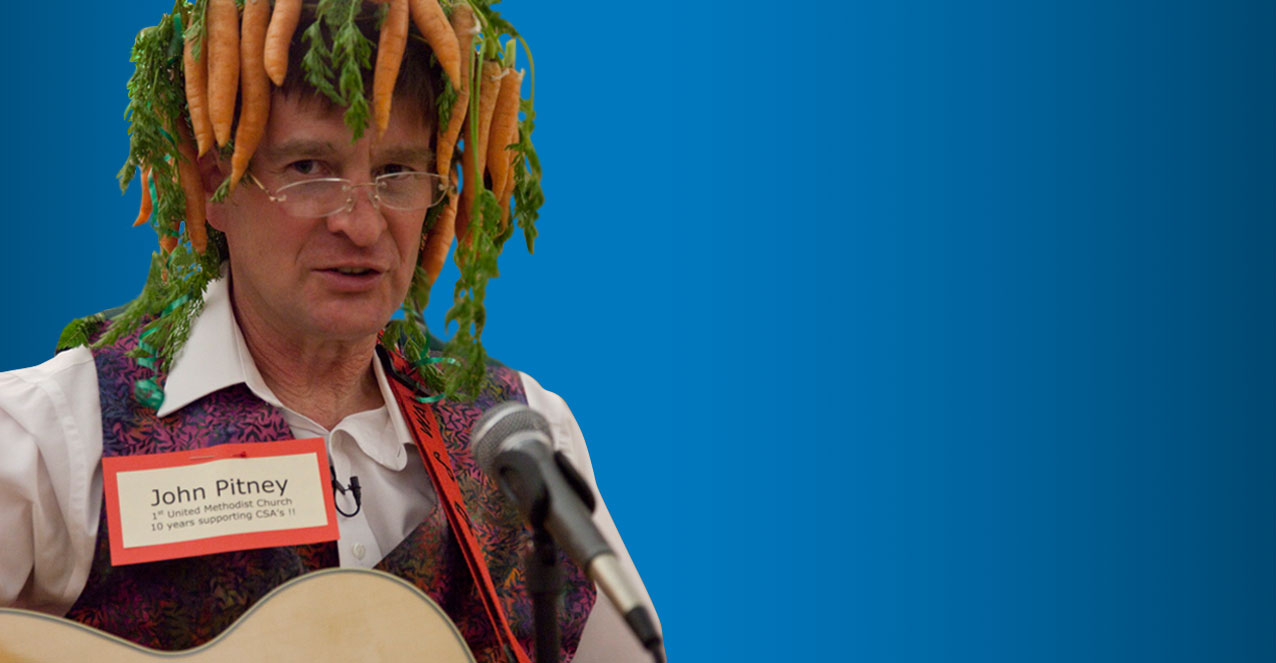
Oh, John … so much deep thinking and awareness. I’ve been doing a lot of thinking about how the income inequality continues from the days of slavery and “our” willingness to continue using their cheap labor.
Here in Lane Co, Oregon we can support our Latinx community here: https://centrolatinoamericano.org/resources/
NAACP of Lane Co. https://naacplanecounty.org/
are working with
Beyond Toxics https://www.beyondtoxics.org/work/
on Environmental Justice for BIPOC.